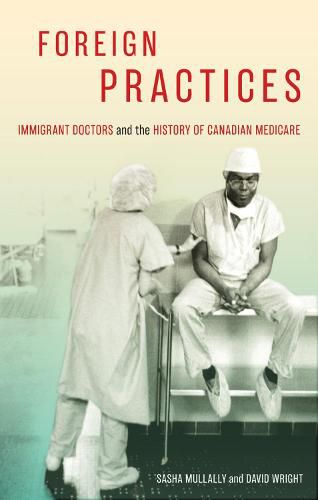Readings Newsletter
Become a Readings Member to make your shopping experience even easier.
Sign in or sign up for free!
You’re not far away from qualifying for FREE standard shipping within Australia
You’ve qualified for FREE standard shipping within Australia
The cart is loading…






This title is printed to order. This book may have been self-published. If so, we cannot guarantee the quality of the content. In the main most books will have gone through the editing process however some may not. We therefore suggest that you be aware of this before ordering this book. If in doubt check either the author or publisher’s details as we are unable to accept any returns unless they are faulty. Please contact us if you have any questions.
When the CBC organized a national contest to identify the greatest Canadian of all time, few were surprised when the father of Medicare, Tommy Douglas, won by a large margin: Medicare is central to Canadian identity. Yet focusing on Douglas and his fight for social justice obscures other important aspects of the construction of Canada’s national health insurance - especially its longstanding dependence on immigrant doctors.
Foreign Practices reconsiders the early history of Medicare through the stories of foreign-trained doctors who entered the country in the three decades after the Second World War. By making strategic use of oral history, analyzing contemporary medical debates, and reconstructing doctors’ life histories, Sasha Mullally and David Wright demonstrate that foreign doctors arrived by the hundreds at a pivotal moment for health care services. Just as Medicare was launched, Canada began to prioritize highly skilled manpower when admitting newcomers, a novel policy that drew thousands of professionals from around the world. Doctors from India and Iran, Haiti and Hong Kong, and Romania and the Republic of South Africa would fundamentally transform the medical landscape of the country.
Charting the fascinating history of physician immigration to Canada, and the ethical debates it provoked, Foreign Practices places the Canadian experience within a wider context of global migration after the Second World War.
$9.00 standard shipping within Australia
FREE standard shipping within Australia for orders over $100.00
Express & International shipping calculated at checkout
This title is printed to order. This book may have been self-published. If so, we cannot guarantee the quality of the content. In the main most books will have gone through the editing process however some may not. We therefore suggest that you be aware of this before ordering this book. If in doubt check either the author or publisher’s details as we are unable to accept any returns unless they are faulty. Please contact us if you have any questions.
When the CBC organized a national contest to identify the greatest Canadian of all time, few were surprised when the father of Medicare, Tommy Douglas, won by a large margin: Medicare is central to Canadian identity. Yet focusing on Douglas and his fight for social justice obscures other important aspects of the construction of Canada’s national health insurance - especially its longstanding dependence on immigrant doctors.
Foreign Practices reconsiders the early history of Medicare through the stories of foreign-trained doctors who entered the country in the three decades after the Second World War. By making strategic use of oral history, analyzing contemporary medical debates, and reconstructing doctors’ life histories, Sasha Mullally and David Wright demonstrate that foreign doctors arrived by the hundreds at a pivotal moment for health care services. Just as Medicare was launched, Canada began to prioritize highly skilled manpower when admitting newcomers, a novel policy that drew thousands of professionals from around the world. Doctors from India and Iran, Haiti and Hong Kong, and Romania and the Republic of South Africa would fundamentally transform the medical landscape of the country.
Charting the fascinating history of physician immigration to Canada, and the ethical debates it provoked, Foreign Practices places the Canadian experience within a wider context of global migration after the Second World War.